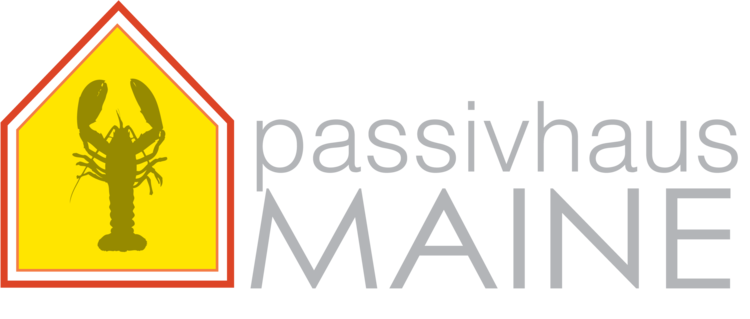MAINE LD 1101
LD 1101 was born from passivhausMAINE’s retrofitMAINE project. Our work on the Energy Tag of MUBEC is meant to tilt the existing codes to increased efficiency and resilience of new buildings. For existing buildings, passivhausMAINE has found the challenges of retrofits to be overwhelming in cost, inconvenience and complexity. Adoption of LD 1101 increases the probability that efficiency measures actually take place with a low barrier, voluntary audit which prioritizes potential projects to increase a building's score and also points consumers to funding opportunities. We have a once in a generation opportunity for wide scale updating of the building stock both for mitigation and adaption to climate change.
The Legislative Committee on Energy, Utilities, and Technology (EUT) is currently considering LD 1101, a bill born from our very own retrofitMAINE project. The bill would create a voluntary home energy scoring system and an infrastructure for routine home energy audits.
Pros include:
Equity centered: transparency at sale, lowering operations costs, increasing building resilience, healthy interiors, durability in extreme weather events.
Voluntary
Consumer protections at points of sale
leveraging improvements for sellers’ benefit
increased participation in rebates, incentives and tax credits
decreased carbon emissions and costs for operations in the Single Family Home market.
Anonymous collection of carbon and building stock data to inform future building policy
Remote Audit is less costly, less workforce intensive- reserving workers for the actual retrofit work
Bolsters Clean Energy Workforce- either as auditors or retrofit construction.
Embracing this once in a generation opportunity to decrease carbon emissions and increase durability of Maine’s aged building stock
Building Stock improvement: Maine has some of the oldest building stock in the country, the highest proportion of buildings heated with #2 heating oil ($$volatile prices) and the oldest population in the country. Improvement to existing buildings is a top priority is a single bullet which improves multiple challenges.
Potential Cons
We’re cautious about requiring in-person audits to participate and would prefer remote audits. We think LD 1101 will increase the probability that efficiency measures actually take place, especially if energy audits are easy to access. Required in-person audits has potential to be a barrier to program uptake with few auditors currently in place. Programs can be developed to encourage this field. We prefer to see a remote audit option and focus workforce development on the retrofit field.
OVERVIEW: What does the bill do?
This bill directs the Efficiency Maine Trust to establish a voluntary home energy scoring system for residential buildings for the purpose of evaluating a building's energy efficiency and relative greenhouse gas emissions. The bill also provides requirements relating to home energy audits.
LD 1101 increases the probability that efficiency measures take place by providing a voluntary low-barrier audit which prioritizes potential projects to increase a building's efficiency score and also directs consumers to funding opportunities.
IMPACTS: Why does it matter?
Equity: Equity centered: transparency at sale, activating cost saving incentives, lowering operations costs, increasing building resilience, healthy interiors, durability in extreme weather events.
Climate Action: decreased carbon emissions and costs for operations in the Single Family Home market. Sistering with current rebate and incentive programs to encourage participation. LD 1101 represents both climate mitigation and adaptation.
Fiscal health: The audit will point to local, state and federal incentives. This program also provides anonymous data collection for future housing and building policy.
Economic Development: Bolsters Clean Energy Workforce- either as auditors or retrofit construction.
Quality of Life: Improved personal wellness with healthy interiors, predictable costs, comfort of an energy efficient home and resilience in extreme weather events.

